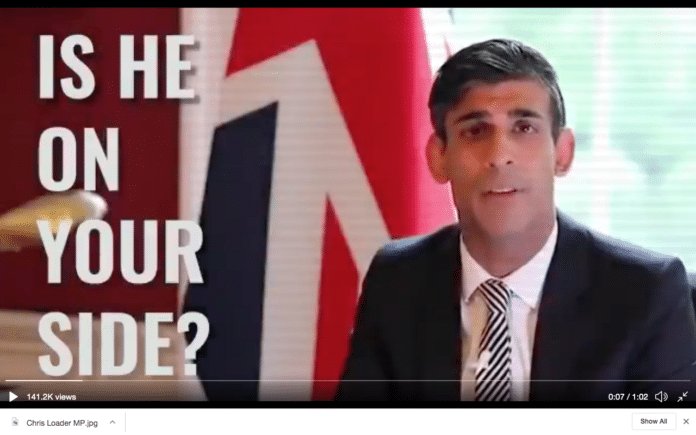Rishi Sunak has announced a public sector pay freeze and a cut to foreign aid spending as the UK battles soaring debt and unemployment amid a huge COVID-induced economic shrinkage.
As he announced his one-year spending review to the House of Commons on Wednesday, the chancellor declared the “economic emergency” from the coronavirus pandemic “has only just begun”.
With UK borrowing forecast to reach £394bn this year – equivalent to 19% of GDP and the highest recorded level in the country’s peacetime history – Mr Sunak announced a pay freeze for public sector workers outside of the NHS.
He also abandoned a Conservative manifesto commitment to fund the foreign aid budget at the equivalent of 0.7% of gross national income, instead cutting it to 0.5%.
Mr Sunak told MPs the Office for Budget Responsibility (OBR) expects unemployment to rise to a peak of 2.6 million people next summer.
The OBR has also forecast an 11.3% contraction in the UK economy this year – the largest fall in output for more than 300 years, the chancellor said.
Mr Sunak added: “Even with growth returning, our economic output is not expected to return to pre-crisis levels until the fourth quarter of 2022.
“And the economic damage is likely to be lasting. Long-term scarring means, in 2025, the economy will be around 3% smaller than expected in the March budget.”
Mr Sunak said the government had this year provided £280bn to battle the COVID crisis, with an initial £18bn already earmarked for next year for spending on personal protective equipment, testing and vaccines.
But the chancellor also set out fresh spending, with a new £4bn “levelling up” fund to allow local areas to bid for funding for local projects.
Among Mr Sunak’s announcements was a £4.3bn package of support to help the jobless find work.
This includes a new three-year £2.9bn scheme to help one million unemployed people in their job search – alongside £1.4bn of new funding to increase Job Centre Plus capacity.
Earlier on Wednesday, Mr Sunak and the chief secretary to the Treasury, Steve Barclay, updated the cabinet ahead of the spending review.
Cabinet ministers were warned that economic forecasts by the Office for Budget Responsibility (OBR) made for a “sobering read”.
A Number 10 spokesman said: “Cabinet was told the OBR forecasts will show the impact the coronavirus pandemic has had on our economy and they will make for a sobering read, showing the extent to which the economy has contracted and the scale of borrowing and debt levels.
“But – as the IMF (International Monetary Fund), OBR and others have pointed out – the costs would have been much higher had we not acted in the way we have done.”
The chancellor set out the government’s three priorities for the spending review as protecting people’s lives and livelihoods, investing in public services, and delivering infrastructure funding to “level up and spread opportunity” across the UK.
Wednesday’s spending review came a week ahead of England’s month-long lockdown coming to an end.
This will allow all shops across the country to open for three weeks before Christmas and – Mr Sunak will hope – provide much-needed stimulus for the economy.
The prime minister and the chancellor were due to address the 1922 Committee of Conservative MPs on Wednesday evening.
Analysis: No chancellor in peacetime has faced such a sea of red
By Paul Kelso, Sky News business correspondent
Rishi Sunak set the tone for his spending review in the opening sentence: “Our health emergency is not over yet and our economic emergency has only just begun”.
The scale of that emergency was chastening even if much of it was expected, and in parts not as truly awful as the Office for Budget Responsibility had previously forecast.
The economy will have shrunk by 11.3% by the end of the year and GDP will not recover to pre-COVID levels until the second half of 2022. By 2025 it will still be 3% smaller than forecast in the March Budget.
Meanwhile borrowing to tackle the pandemic has been stratospheric, £394bn this year and another £164bn next, some £55bn of which will be for COVID-specific projects including NHS Test & Trace.
And unemployment, the devastating human metric of any recession, is forecast to reach 2.6m people next year.
No chancellor in peacetime has faced such a sea of red, but Mr Sunak offered only two confirmed cuts to government spending to offset the tide.
The first, a pay freeze for public sector workers.
One million NHS staff are exempt and those earning less than £24,000 will receive a one-off £250 rise next year, but it still leaves millions celebrated as “key workers” facing a real-terms pay cut.
The second was to the foreign aid budget, set in law by David Cameron’s government at 0.7% of GDP but now to be trimmed to 0.5% until “fiscal conditions allow” a return.
The chancellor promised departmental spending will rise along with the national living wage and offered a check list of measures and initiatives, from jobs to new infrastructure.
But remarkably there was no mention of Brexit, or even acknowledgment of the cliff-edge that looms in just 36 days if there is no deal, an outcome the OBR says will cut a further 2% from GDP.
When the chancellor sat down we knew more about how this government hopes to plot a path to recovery, but so far only two groups – key workers and the foreign poor – will help pay for it.
THE KEY POINTS NEXT







